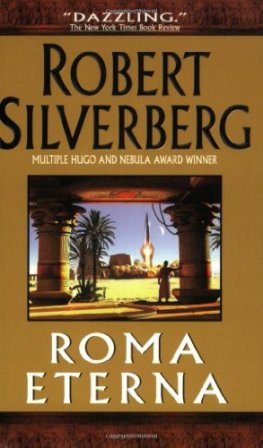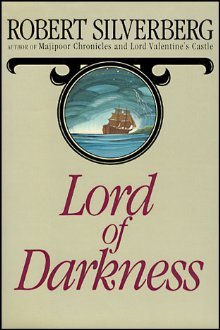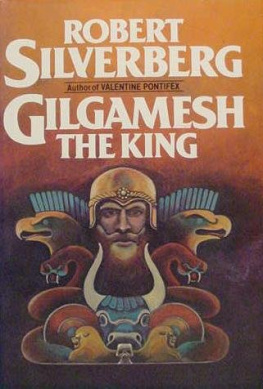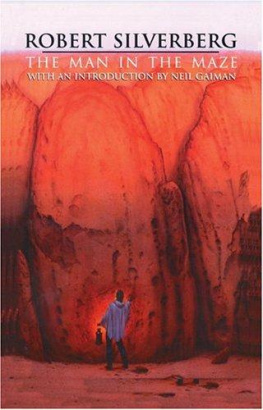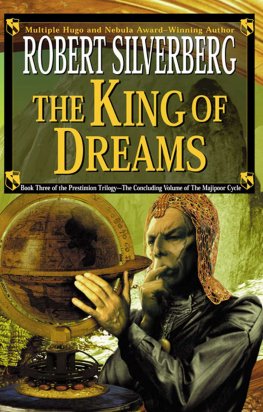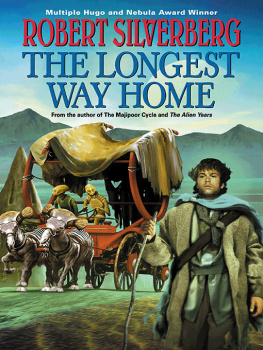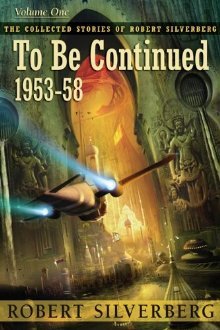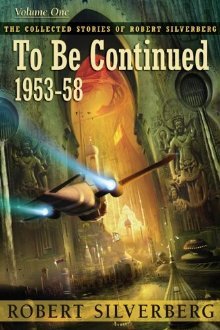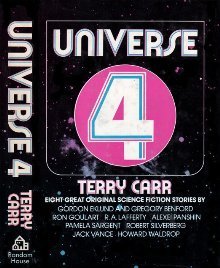Robert Silverberg - The Second Wave
Here you can read online Robert Silverberg - The Second Wave full text of the book (entire story) in english for free. Download pdf and epub, get meaning, cover and reviews about this ebook. year: 2003, publisher: HarperCollins, genre: Science fiction. Description of the work, (preface) as well as reviews are available. Best literature library LitArk.com created for fans of good reading and offers a wide selection of genres:
Romance novel
Science fiction
Adventure
Detective
Science
History
Home and family
Prose
Art
Politics
Computer
Non-fiction
Religion
Business
Children
Humor
Choose a favorite category and find really read worthwhile books. Enjoy immersion in the world of imagination, feel the emotions of the characters or learn something new for yourself, make an fascinating discovery.
- Book:The Second Wave
- Author:
- Publisher:HarperCollins
- Genre:
- Year:2003
- ISBN:978-0-380-97859-5
- Rating:5 / 5
- Favourites:Add to favourites
- Your mark:
- 100
- 1
- 2
- 3
- 4
- 5
The Second Wave: summary, description and annotation
We offer to read an annotation, description, summary or preface (depends on what the author of the book "The Second Wave" wrote himself). If you haven't found the necessary information about the book — write in the comments, we will try to find it.
The Second Wave — read online for free the complete book (whole text) full work
Below is the text of the book, divided by pages. System saving the place of the last page read, allows you to conveniently read the book "The Second Wave" online for free, without having to search again every time where you left off. Put a bookmark, and you can go to the page where you finished reading at any time.
Font size:
Interval:
Bookmark:
Robert Silverberg
The Second Wave
They were the second wave of the invasion. The first had vanished like water into the sands. But now the Emperor Saturninus had sent another fleet to the New World, far larger than the first, and there would be more to follow if need be. We will beat against their shores as the ocean does, and in the end we will conquer. So the Emperor had declared, five years before, on the day news of the disaster reached the capital. For Roma is an ocean, too: immense, inexhaustible, irresistible. They will not stand against our might.
Titus Livius Drusus had been at his fathers side that day at the Senate when the Emperor made that speech. He was eighteen, then, a highborn young man of Roma who had not yet settled on his path in life. The Emperors words had left him profoundly stirred. A far-off new world awaiting conquestwhole unexplored continents far beyond the Pillars of Hercules, brimming with the treasure of mysterious copper-skinned people! And there before the Senate was the towering resplendent figure of the Emperor, magnificent in his robes of Imperial purple, crying out in that wonderfully resonant voice of his for brave men to carry the eagles of Romas legions to these alien empires.
Here I am, young Drusus thought, focusing every atom of his will on the broad forehead of the Emperor. I will do it! I am the man! I will conquer this Mexico for you!
But now five years had passed and the Emperor, true as always to his word, had indeed sent that second expedition across the Ocean Sea to the New World. And Drusus, no longer a starry-eyed boy dreaming of strange new worlds to conquer but an experienced soldier of twenty-three beginning to think of marriage and retirement to a country estate, had been offered a commission in the army of invasion and had accepted it, with rather less enthusiasm than he might have shown earlier. The fate of the first expedition was much on his mind. As he stared out now at the darkness of that enigmatic shore lying just ahead he found himself wondering whether he too might be going to leave his bones in this unknown and very probably hostile land, as so many valiant Romans had done before him.
It was shortly before dawn, the third day of the new year 1861. At home the month of Januarius was the coldest of the year, but if Drusus had needed a reminder that he was far from home, that dry, hot breeze blowing toward him out of the new continent would have provided it. At this time of the year not even the wind out of Africa was as warm as this.
Pale pink strands of first light came up over his shoulder. In the thinning darkness ahead he saw the shadowy outlines of a rocky, inhospitable shore that was crowned on a nearby low hill by a massive white building of impressive height and formidable blocky appearance. The land that stretched off to the west in back of it seemed virtually flat and so densely forested that no sign of habitation was visible.
What do you think of it, Titus? asked Marcus Junianus, who had come up quietly on deck beside him. He was two years older than Drusus, a former slave of the family, now a freedman. Free or not, he had chosen to follow Drusus to the New World. They had grown up together; though one was of the ancient Roman nobility and the other the descendant of five hundred years of slaves, they were as close as brothers. Not that anyone would take them for brothers, not ever, for Drusus was tall and pale, with soft straight hair and an aristocrats fine features and elegant manner of speech, and Marcus Junianus was a short, broad-beamed, swarthy man with a flat nose and thick curling hair, who spoke with the inflections of his class and carried himself accordingly. But between themselves they had never let these distinctions form a barrier: to each other they always had been Marcus and Titus, Titus and Marcus, friends, companions, even brothers, in every important way save one.
I think its going to give us a struggle, Marcus. You can smell it in the air. In truth the air itself was unwelcoming: hard, pungent, with an odd sort of spiciness to it that was not at all pleasant. What do you think that big building is? A fortress or a temple?
A temple, wouldnt you say? The Norseman told us that this was a land of great temples. And why would they bother to fortify their coast when its already defended by thousands of miles of empty sea?
Drusus nodded. A good point. Still, I dont think it would be very clever of us to try to make our landfall right below it. Go and tell the captain to look for a safer harbor a couple of miles south of here.
Marcus went off to give the order. Drusus leaned on the rail and watched the land as it came more clearly into visibility. It did seem uninhabited. Long stands of unfamiliar-looking trees stood shoulder by shoulder to form a solid black wall with no openings in view. And yet there was that temple. Someone had hewn those rocks and assembled that forbidding building atop this coastal headland. Someone, yes.
He had spent eight weeks at sea getting to this place, the longest voyage of his lifeor anybodys, so far as he knew. In eight weeks you could sail the Great Sea, the Mare Mediterraneum, from end to end any number of times, from the Syrian coast westward to the Pillars of Hercules in Hispania and back to Syria again. The Great Sea! How wrong the ancients had been to give the Mediterraneum so grandiose a name. The Great Sea was a mere puddle compared to this one that they had just crossed, the vast Ocean Sea that separated the worlds. It had been an easy enough journey through steadily warming waters, lengthy and dull but not in any way difficult. You hoisted your sails, you aimed your nose westward, you picked up a following wind and off you went, and, yes, sure enough, in the fullness of time you found yourself in a gentle blue-green sea dotted with tropical islands where you could replenish your supplies of food and water with no interference from the simple naked natives, and then, continuing onward, you arrived soon afterward at what was unmistakably the shore of some huge continent, which must beyond any doubt be that Mexico of which the Norseman spoke.
Looking at it now, Drusus felt not fear, for fear was an emotion that he did not regard as permissible to feel, but a certain sense ofwhat, he wondered? Uneasiness? A sense that this expedition might not be a particularly wise idea?
The possibility of meeting fierce military resistance did not trouble him. It was close to six hundred years since Romans had done any serious fighting, not since Maximilianus the Great had finished off the Goths and Justinianus had put down the unruly Persians, but each succeeding generation had yearned for a chance to show that the old warrior tradition still lived, and Drusus was glad that his was the one that finally would get the opportunity. So let whatever might come, come. Nor did he worry much about dying in battle: he owed the gods a death in any event, and it was always deemed glorious to die for the Empire.
But dying a foolish deathah, that was something else again. And there were plenty of people back at the capital who felt that Emperor Saturninuss hunger to turn the New World into a Roman province was the wildest of foolishness. Even the mightiest of empires must admit its limits. The Emperor Hadrianus, a thousand years ago, had decided that the Empire was becoming too unwieldy and had turned away from any conquests east of Mesopotamia. Persia and India, and Khitai and Cipangu farther to the east in Asia Ultima where the yellow-skinned folk lived, had been left as independent lands, though tied to Roma by treaties of trade. And now here was Saturninus going the other way, off into the distant west, with dreams of conquest. He had heard tales of the gold of Mexico and another western land called Peru, the Emperor had, and he hungered for that gold. But could this New World be conquered, across such a distance? And, once conquered, could it be administered? Would it not be more intelligent simply to strike up a mercantile alliance with the people of the new continent, sell them Roman goods in return for their abundance of gold, create new prosperity that would bolster the Western Empire against the competition of its prosperous counterpart of the East? Who did Saturninus think he was, Alexander the Great? Even Alexander had turned back from the conquest of distant lands, finally, after reaching the frontiers of India.
Font size:
Interval:
Bookmark:
Similar books «The Second Wave»
Look at similar books to The Second Wave. We have selected literature similar in name and meaning in the hope of providing readers with more options to find new, interesting, not yet read works.
Discussion, reviews of the book The Second Wave and just readers' own opinions. Leave your comments, write what you think about the work, its meaning or the main characters. Specify what exactly you liked and what you didn't like, and why you think so.

